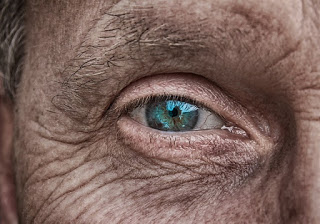They say your eyes are the gateway to your soul, but they’re also the keys to a happy life in your golden years. It’s no secret that blurry vision, cataracts and even just persistent dryness can take away from your daily experience.
Without proper vision care, your eyes may start to fail you in certain stages of your life, and it’s not until a major event takes place that you may notice the effects.
As it turns out, there are some surprising areas of your life that depend on your eye health which are often overlooked.
The Ripple Effect of Vision and Eye Movement
Your body (and mind) is connected from head to toe – it’s not a haphazardly connected set of “moving parts”. Your eyes are no exception. The information received by your eyes does far more than help you appreciate a glimmering sunset or a painting from your grandkids.
They give your brain sensory cues that influence how you move, position yourself in space (proprioception) and even the way you make decisions. And that’s why poor vision can have a negative effect throughout your body and for your mind.
Eye Health & Posture
Standing or sitting upright with your shoulders back is a good advice, but good posture doesn’t start with your neck or spine. Much of it starts with the eyes. The position of your head shifts based on visual cues such as light patterns, eye movements and the clarity of sight.
If the eyes misinterpret what they see, so will the brain. The brain will then tell the muscles to adjust themselves to accommodate to the picture presented by the eyes, but the messages are based on an inaccurate image. Very subtly, the head and neck may slouch forward, and the spine may develop abnormal curves to compensate for a postural change created by the misinformed brain.
Eye Health & Balance
Closely related to the issue of posture is the issue of balance. Although not fully understood yet, it’s clear that the eyes and the vestibular system are tightly connected. The organs of the vestibular system work together with the eyes to give your body a sense of where it is, and in turn, a sense of how you’re standing (balance).
When vision goes bad, the vestibular system receives false information, and this creates a mismatch between how you feel and how your body positions itself. Studies now show that these effects are a major cause for slips and falls in older adults.
Eye Health & Driving
Not much science is needed to explain why poor eye health affects driving ability. However, it’s important to emphasize the effects. Safe driving requires a mix of clear sight (visual acuity), quick reflexes and reaction times, and the ability to judge distances and speeds (visual processing).
As one ages, these visual skills weaken. The eyes could misinterpret what they see and the brain will receive the wrong message. This trickles down to one’s decision-making ability, because they may assume that they’re executing a safe action that in reality is poorly timed.
Eye Health & Mental Health
Declining vision can also cause emotional pain, especially if it affects your ability to carry out activities and hobbies you enjoy. It’s often one of the earlier signs of aging. It may serve an ominous reminder that the body and mind are changing and that certain lifestyle habits will have to change as well.
Fight For Your Sight: The Importance of Good Eye Care
To halt and even reverse the above-mentioned effects, it’s important to take good care of your eyesight. That means seeking proper vision care and adopting lifestyle choices that maintain good eye health. Doing so is even more important if you have a family history of eye-related conditions (ie. macular degeneration), diseases that affect eyesight (ie. diabetes, high blood pressure) or if you have had vision problems in the past.
Tips To Maintain Healthy Eyesight
- See your optometrist regularly – An annual eye exam is vital. Regular checkups will detect visual changes faster, which means you can address them before they become problematic.
- Eat vision boosting foods – Foods containing omega-3s, lutein, zinc and vitamins C and E appear to maintain and improve eye health. Rich sources of these vitamins and minerals include green leafy vegetables, oily fish and eggs.
- Avoid direct exposure to the sun – Staring directly at the sun can cause serious damage to your retina, leading to visual damage and a loss of eyesight. Never look directly at the sun, and on very bright days, wear sunglasses to shield your eyes from UV rays.
- Wear prescription glasses as recommended – If your doctor has prescribed glasses for you to wear, it’s in your best interest to follow their direction. Wearing your glasses for their intended purpose will ensure that your eyes are getting the assistance they need for the task at hand.
Eye Health Affects You From Head To Toe
A decrease in vision is inevitable as you age, but don’t make the mistake of surrendering to complete visual dysfunction. Failing to take good care of your eyes as you age can have serious consequences. Not only can this affect your posture, balance and driving, but it can also affect you emotionally.
With regular vision care and a lifestyle that maintains good eye health, you will preserve your eyesight for years to come. And more importantly, you’ll experience life to its fullest, especially when it presents you with its colourful wonders!

